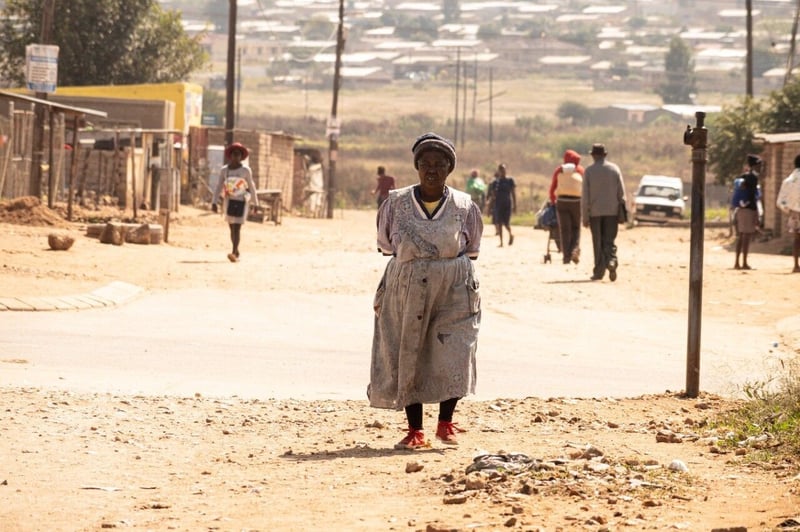The Invisible Impact - Climate change and women
Written by: Leigh Callipolitis Save to Instapaper
April 2022 saw floods cause untold devastation in KwaZulu Natal. Over 430 people lost their lives, many are still missing and before any real repair could be done, further floods hit the area again last week.
These floods caused drownings, landslides, destruction of homes and businesses and subsequent power and water outages. This natural disaster highlighted the socio-economic and climate change vulnerabilities of our country, and of women.
Bongiwe Ndondo says that as the tough work really begins and people start rebuilding their lives, it is important to reflect on how this emergency humanitarian crisis discriminates against and impacts women most.
“Women are much more vulnerable when it comes to humanitarian or environmental disasters. In terms of poverty, and the burden of care, climate change impacts the poor the most, of which women make a larger proportion than men,” says Ndondo who is the Executive Director of Hlanganisa Community Fund for Social and Gender Justice.
According to South Africa’s Living Conditions Survey (LCS) 52.2% of women fall below the upper-bound poverty line (UBPL) or national poverty line, compared to 46.1% of men. Furthermore, research shows that 74.8% of women-led households fall below this line, whereas only 59.3% of men-led households do. (The South African government measures the upper-bound poverty line (UBPL) as an income of R 1,183 per month).
“With certain geographic areas being more vulnerable due to location as well as climate change, women seem to bear the brunt of not being able to relocate easily. Child and extended family care responsibilities often mean that they are the last to be moved,” says Ndondo.
“Inequalities such as poor housing and land ownership and financing increase women’s vulnerability. Furthermore, the increase in water borne diseases caused by flooding becomes a women’s burden, with the added responsibility of having to care for ill family,” she says.
Climate change impacts food security, portable water supply and energy for heating and cooking, and severely impacts women who are more dependent on natural resources for their livelihoods.
Because of the socioeconomic status of women, they are often excluded from environmental management discourse, limiting their decision-making power.
Worse yet, in situations of displacement, women’s vulnerability to sexual gender-based violence increases, including rape, trafficking and early or forced marriages.
This is a situation is mirrored in many countries globally, with the United Nations stating ten years ago already that climate change, as one of the greatest global challenges of the twenty-first century, impacts gender differently.
An article written in 2012 by Balgis Osman-Elasha, Principal Investigator with the Climate Change Unit in Sudan stated that “Women are increasingly being seen as more vulnerable than men to the impacts of climate change, mainly because they represent the majority of the world's poor and are proportionally more dependent on threatened natural resources”.
Ndondo says that the gender inequality gaps relating to access to resources such as housing, land and credit needs to be addressed, including information and technology which is crucial in disaster management and mitigation.
“As a country, and a continent, we need to strengthen women’s organizations to build resilience, to focus on mitigation and disaster management and control,” Ndondo says.
Founded in 2006 as Hivos South Africa, Hlanganisa facilitates grants and funding to provide opportunities to uplift many South Africans who continue to experience discrimination and poor access to their socio- economic rights. Improving the lives of society’s most vulnerable and capacity building are some of the pillars of this South African civil society organisation, with climate and gender justice, resilience and women’s leadership at their core focus.
Real change is needed when it comes to facilitating political participation of women in climate change discourse. “This speaks to acknowledging that women are repositories of indigenous knowledge systems that can help preserve environment, improve food security, improve adaptations around water harvesting, storage, food preservation, agricultural practices and strengthen local food supply chains,” she says.
Ndondo says that changes needed on the ground include the collection and utilisation of sex disaggregated data and improved disaster preparedness on the part of local governments.
“Socioenvironmental issues impact women differentially; now is the time to be intentional in mitigating the looming crises,” she says.
Get new press articles by email
Latest from
- IWISA No.1 launches its Fills Good campaign at the Crescent of Hope NPO
- IWISA No.1’s trailblazing Fills Bold Designer Search closes on 13 July 2025
- Dress Like Your Dad Day Inspires Reflection On Fathers’ Crucial Role In Education And Success
- Jetour South Africa celebrates biggest customer day to be hosted in Africa to date
- FNB App Academy Hits Record 217,000 Registrations, Cementing Its Role in Africa’s Digital Skills Revolution
- Migraines - It's Time to Raise Awareness About This Common and Often Misunderstood Condition
- Community Champions competition ends tomorrow, 31 May, so enter now!
- Don’t Fall Off The South African Labour Law Tightrope
- Celebrating nurses - the heartbeat of South Africa’s health system
- IWISA No 1 Community Champions competition closing date extended
- Frogfoot Rise - Committed To Enhanced Learning Through Connectivity In Underserved Communities
- Flu Season Is Approaching – Is Influenza Really Something To Worry About?
- Fundi wins South Africa Best Employer Brand Award 2023/ 24
- Why iKhokha’s New Slogan is Exactly What South African SME’s Need
- Local Heart Surgeon Honoured With Prestigious International Award Recognizing Work Done To Save Lives Of South African Children Born With Congenital Heart Disease
The Pulse Latest Articles
- Education Is The Frontline Of Inequality, Business Must Show Up (December 11, 2025)
- When The Purple Profile Pictures Fade, The Real Work Begins (December 11, 2025)
- Dear Santa, Please Skip The Socks This Year (December 10, 2025)
- Brandtech+ Has 100 Global Creative Roles For South African Talent (December 9, 2025)
- The Woman Behind Bertie: Michelle’s Journey To Cape Town’s Beloved Mobile Café (December 9, 2025)
